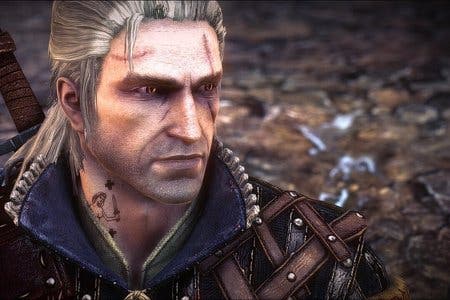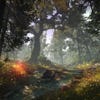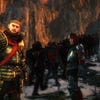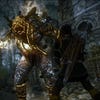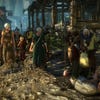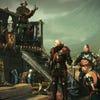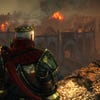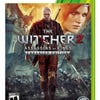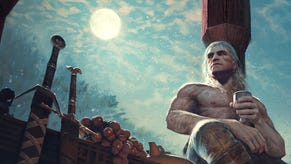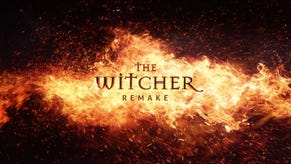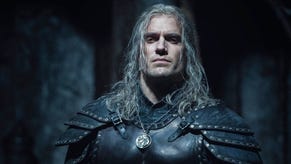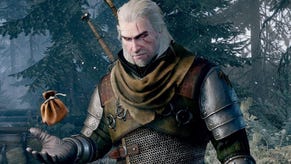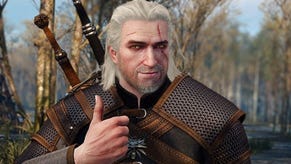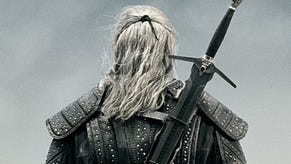The Witcher 2: Assassins of Kings - Enhanced Edition Review
Something wicked this way comes.
"Legends are almost always beautiful. The reality often leaves a lot to be desired."
The witcher's remark is aimed at the Elves, who have strained out the grit of life, love and loss before writing down their history, leaving only romantic, idealistic odes to the past. But it could just as easily be applied to the role-playing game: video game memories that sit warm and pretty in the heart, the reality of their original awkwardness so often lost to time and nostalgia.
So we remember the vainglory of slaying the dragon atop a mountain in Skyrim, not the 20 minutes of tacking zig-zigs on horseback that it took to reach its summit. So we remember Aerith's hands clasped on her still chest in Final Fantasy 7, not the machinegun volley of random battles that prevented us from reaching her in time to save her life. So we remember the silhouette of Fable's sheepdog fighting faithful by our side, not those times he caught upon a sticky polygon, or lost his mind to AI Alzheimer's and tore off to greet the distance. Legends are almost always beautiful. The reality often leaves a lot to be desired.
The witcher's game - his second, a Polish blockbuster exquisitely rebuilt stone by stone for Xbox 360 from the 2011 PC original - has been designed to ensure that, wherever possible, the legend and the reality match.
It's in the interface, which allows you to hack, slash, parry and throw spells with the touch of a button, stylishly slowing time to a crawl as you select a different brand of magic from a radial menu before winding it back to full speed once selected with decidedly un-RPG-like flair. It's in the cut-scenes, which press interactivity into the player's palms at every opportunity while maintaining their Game of Thrones-style directorial drama.
It's in the story itself, which is written at a geographical, architectural level just as much as it is written in the words of its characters. It's in the trade-post town of Flotsam where you spend the first few hours of your adventure, a riverside settlement where racial tension, poverty and hopelessness are scrawled into its dirt and structural layout as much as the dialogue boxes of its inhabitants. It's in the whorehouses, gambling dens and fighting rings where you can fritter away your hard-earned pennies on womanly comfort or manly jeopardy - downtime that might not make it to the history books, but which adds spice and grit to the true tale behind the telling. If The Witcher 2 is the stuff of legend, it's a legend rolled from s**t and blood, semen and mud; a plausible legend.
It's in the voice acting, which brings to vivid life dialogue that has the capacity to move in one moment and arrest the next. It's in the races and dialects, the social pecking order that reveals itself in every conversation with a beggar, a king and everyone in between. It's in the way in which the scriptwriters weave this cultural detail into your missions, over the short term and the long. The witcher's working to clear his name for the assassination of a king, but never too busy to ignore a cry for help from a pauper.
It's in the systemic counterpoint to the talking: combat, a taut, impressive affair which pits Geralt against groups of enemies demanding that you earn your wins through quick wits, nicking at foes with sword swipes before driving them back with ranged spells and dagger throws. Even the most seemingly straightforward skirmish is hard won, while battles against the true monsters lurking beneath the game's shallows require mastery before they relent.
It's in the character development tree, the freedom to extend the witcher's talents into magic or combat or alchemy, crafting a character of your own making rather than merely chiselling away at the predestined potential set out for him by a game designer. It's in the witcher, Geralt of Rivia, himself. Dry, collected, believable, mature, equal parts endearing and vicious, he is a lead character born for legend, the reality of whom rarely fails to live up to the legacy he leaves after the closing credits.
Curiously for a PC game hanging from a branch of Tolkien's family tree, The Witcher 2 is as much Rockstar as it is Bethesda. While this may not be an open-world game, the way that linear story and non-linear play link arms is reminiscent of Red Dead Redemption. Cut-scenes trigger when you approach key characters or areas, while the way missions are received, juggled and delivered is very Grand Theft Auto.
Where CD Projekt's game surpasses this influence is in the branching story: choices that halt you in your tracks as you realise the full weight of their repercussions, not only to those around you in the game, but also to your story, your legend. John Marston was tethered to Rockstar's tale, but you define the both the fine detail and grand sweep of Geralt's, deciding one moment whether to save the women from the burning building or topple the corrupt commander before he flees, before choosing which key character you will chase for the next 10 hours, altering the game experience dramatically.
Inevitably, perhaps, a few elements leave something to be desired. CD Projekt's first console release has textures that pop in and the occasional game-halting crash (although no bugs so persistent or crippling as those seen in the console versions of Skyrim). The interface occasionally requires one finger more than a console player owns (switching spells mid-battle on the Xbox controller forces thumbs and fingers into tortured positions) and there's just a little too much reliance on quick-time-event button-presses, which more feel out of place than ever here. An all-new tutorial smooths over some of the clumsiness of the PC game's opening hours, but the game demands just enough of its player before it begins to pay out its greatest rewards to ensure that some will walk away disappointed.
There are areas where the console players arriving late to The Witcher 2 benefit, however. For one, all downloadable content released for the game thus far is included in the package, these extra missions slotting seamlessly alongside the main quest so you can't see the stitching. The quality of these missions is universally high and creative: one asks you to wean a troll off vodka, another - exclusive to this version of the game - has you quietly escorting a lady-in-waiting from the city as she seeks to evade the eye and ire of her mage hunters.
The Witcher 2's timing is prescient. As Game of Thrones dominates the television ratings, just as Skyrim has dominated the game charts in recent months, the cultural appetite for fantasy is as high as it's ever been. Despite the competition, however, The Witcher 2 has an air of unique wonder about it. There's a weight and detail to the mythology that is beguiling, but CD Projekt's skill has been in making this relevant and meaningful to the player.
Where endless talk of mythical factions, rivalries and loyalty can drag even the best fantasy fiction down, in The Witcher 2, the backstory is as compelling as the plot that darts through it. And the weave of systems and story ensures that here is a legend as beautiful in the reality as it is in the telling.
